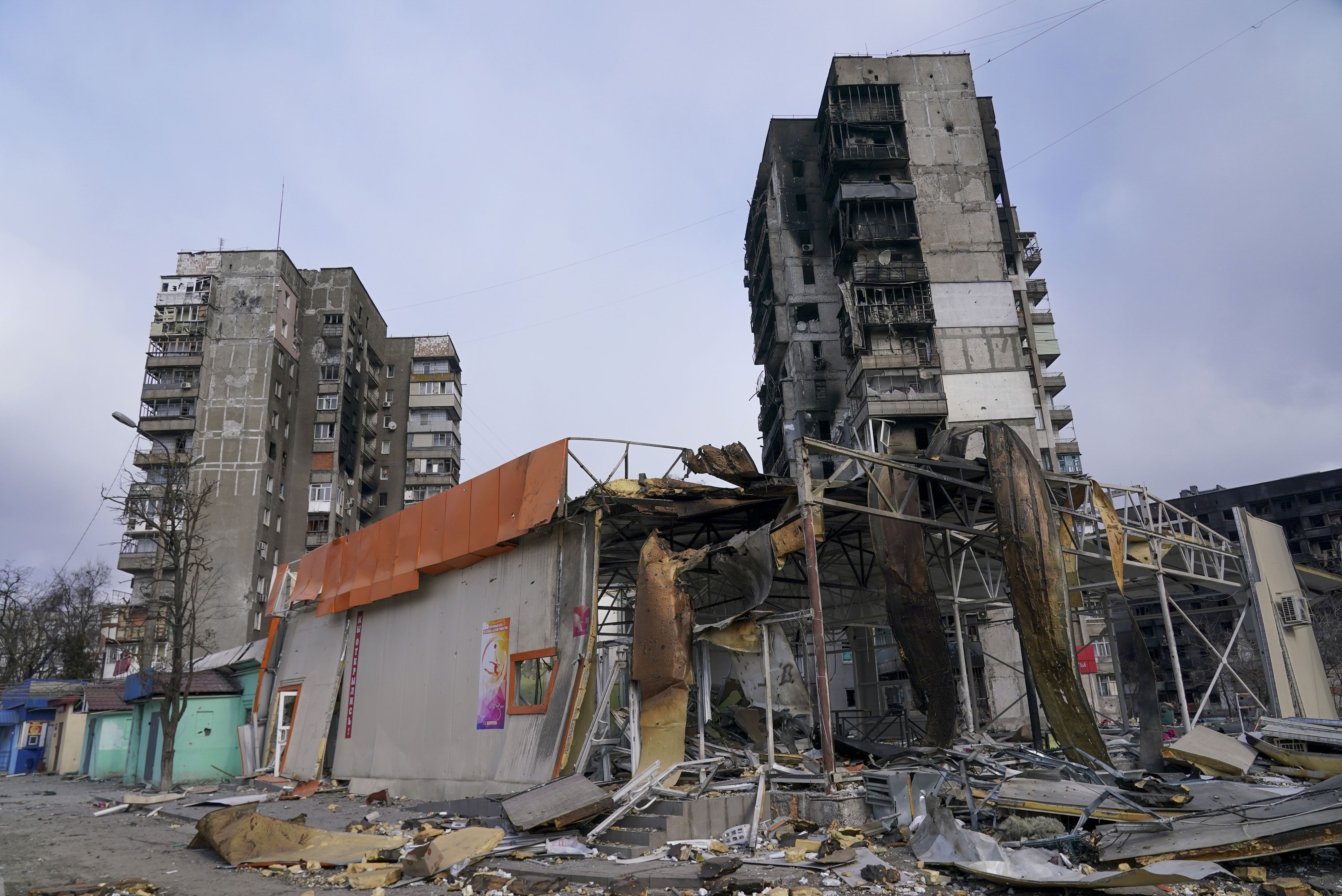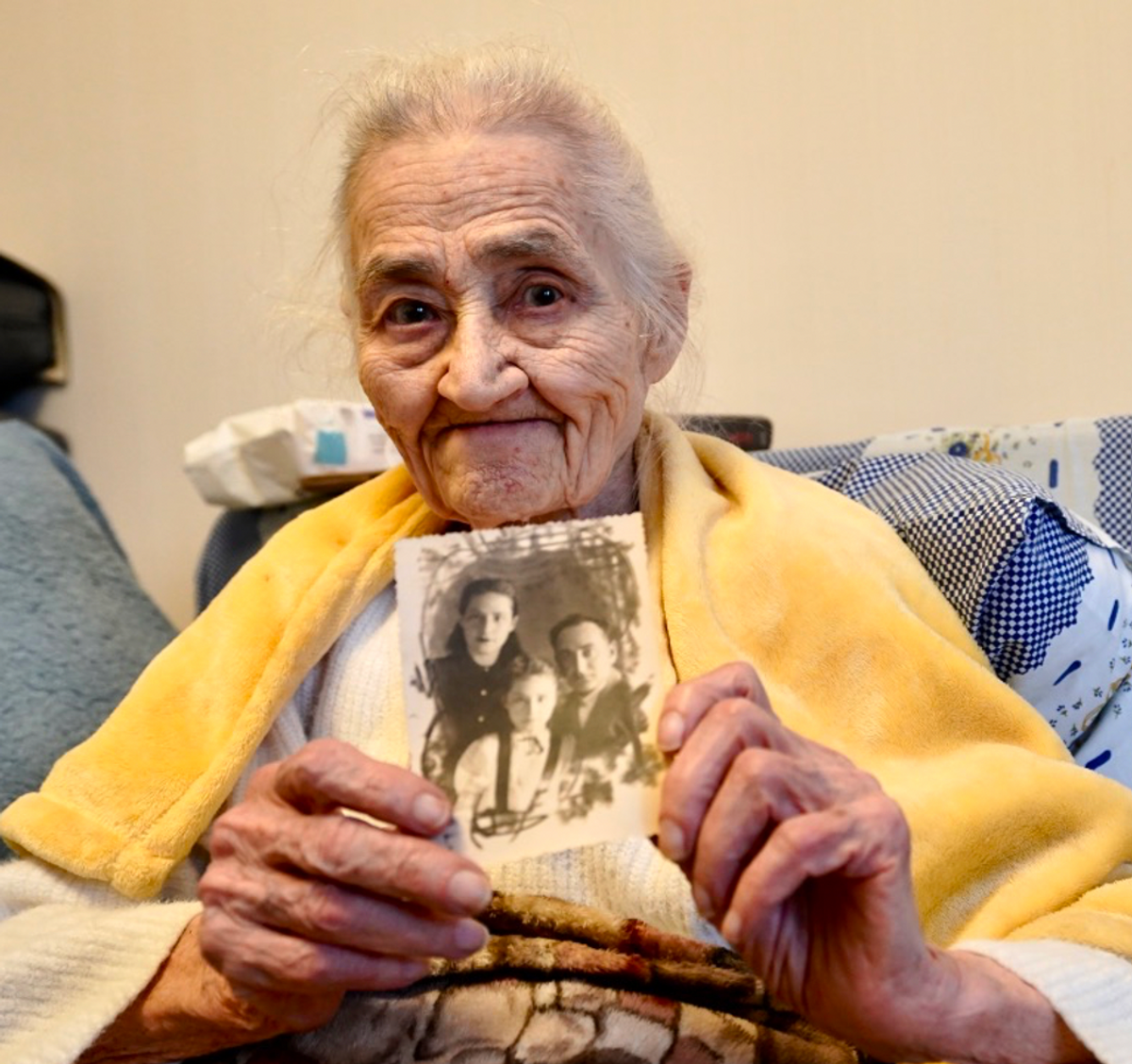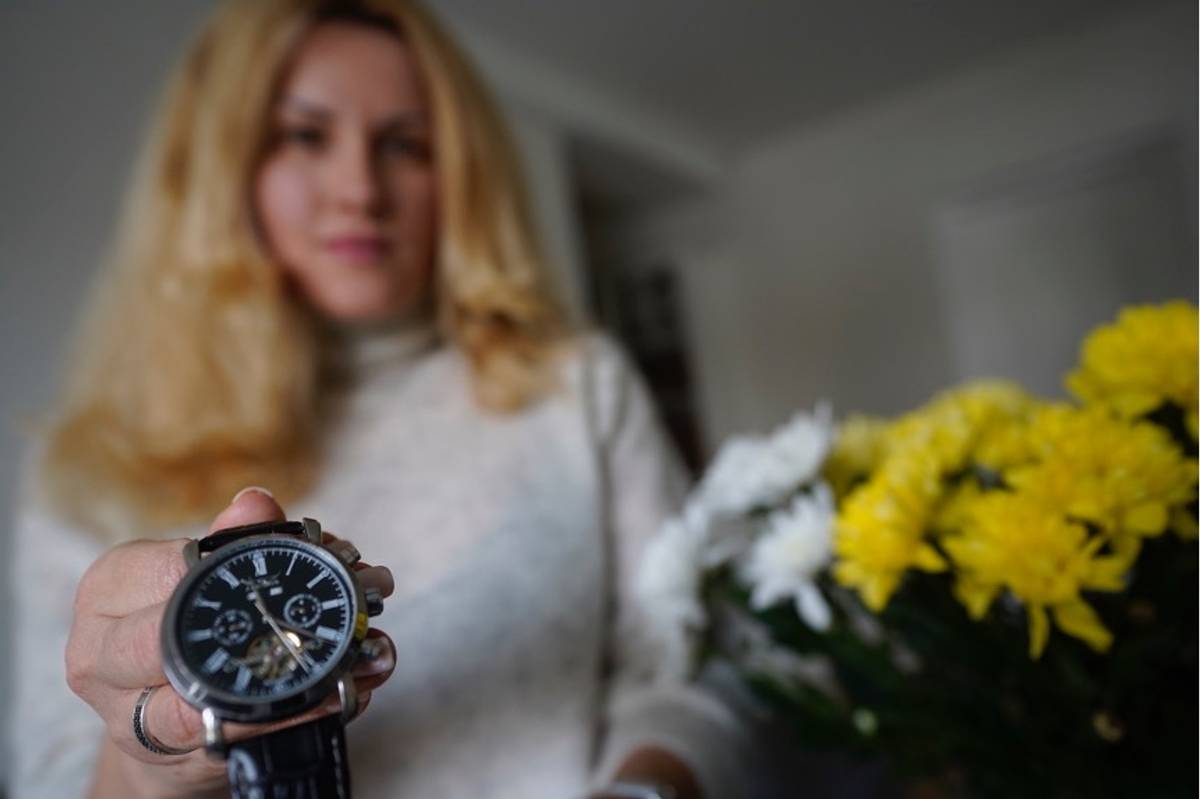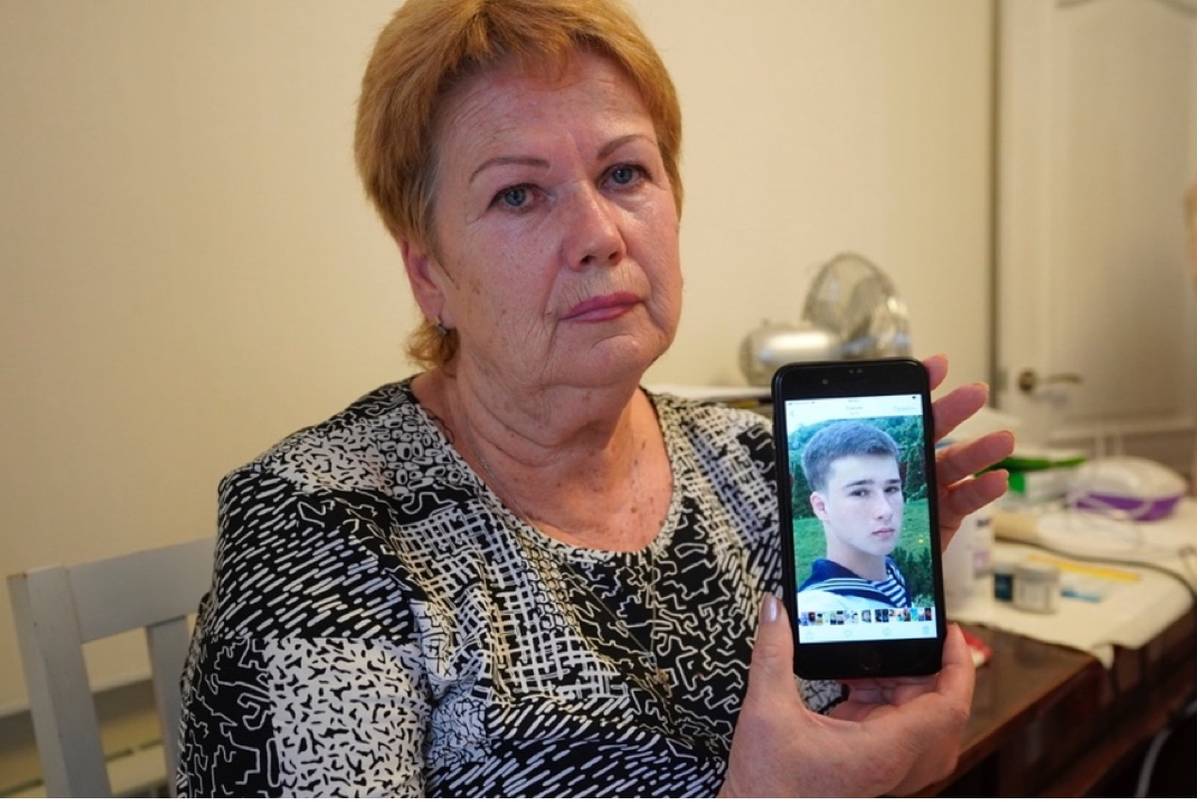Escape From Mariupol
A Holocaust survivor and her family in hiding and on the run



Operation Barbarossa, the largest land invasion in history, began before dawn on June 22, 1941, when over 3.5 million German troops—accompanied by Germany’s allies Italy, Hungary, Finland, and Romania—stormed into Poland, the Baltic states, and the Soviet Union.
General Gerd von Rundstedt’s Army Group South barreled into Lviv, made quick work of Dnipro, and on Oct. 8, 1941, surrounded and captured the strategically important port city of Mariupol on the Sea of Azov.
Sonderkommando Unit 10a, part of the Waffen SS’s Einsatzgruppe D, followed close behind. The massacre of Jews began almost immediately. Of the approximate 11,000 Jews in Mariupol, it is estimated that 8,000 to 9,000 were murdered. Nearly all of them were shot.
One of those who managed to hide from the Germans was 6-year-old Elvira Borts, whose non-Jewish mother and her relatives and neighbors hid her away for two years in apartments, ditches, even in a cave. Elvira remained in hiding until Sept. 10, 1943, when Soviet Generals Tolbukhin and Maliovsky liberated Mariupol. When Elvira went off to find what was left of her family, she learned that more than 36 of them had been murdered, shot and dumped in a mass grave at Agrobaza, an agricultural center outside of town.
Eighty years, five months, and 14 days after Mariupol was liberated, Elvira Borts went into hiding again, only now from the Russians. This time she wasn’t alone. Elvira and her 93-year-old husband, Nikolai Petrov, huddled together with her late brother’s widow, 70-year-old Lubov Borts and Lubov’s daughter, 43-year-old Inna Zakaloka.
Because Mariupol sits only 25 miles from the border, the Russians were able to attack it with fighter jets, tanks, artillery, and infantry on the very first day of the war on Feb. 24, 2022. Six days later, they had the city completely surrounded and cut it off from the rest of Ukraine. While tens of thousands of civilians fled as quickly as they could, hundreds of thousands simply couldn’t—or, in the case of Elvira’s family, wouldn’t. They agreed that as long as 19-year-old Mark, Inna’s strapping young son and only child, was serving with the National Guard in the Azovstal steel plant, they would wait for him.
But as each day went by, as one apartment house after another was pulverized all around them, as thousands of civilians were being killed or burned to death in their high-rises, the Borts family realized they’d have to get out of Mariupol. By this time, the Russian Army, accompanied by the murderous forces of the Donetsk Liberation Army, were going house to house, closing in on the Borts.
This is the story of the Borts family, how they survived for 50 days, and how they managed to escape Mariupol and flee to Kyiv, where I first interviewed Elvira and Lubov in August 2022.
As for Mark, after holding out for 82 days in the Azovstal steel plant, he surrendered with his unit on May 17. When I met the family that summer, he had been a Russian prisoner for 90 days, and as I sat with Lubov, it was clear her face was puffy from crying. She held up a cellphone with his picture on it. He barely looked 15, although Lubov told me he had just turned 20 and her eyes began to redden again.
When I returned to Kyiv in December 2022, there were no lights in the family apartment—as was the case in most of Kyiv’s left bank of the Dnieper, but Lubov was beaming, Elvira was smiling and Lubov’s daughter Inna, who worked as an international tour guide in Greece and Turkey, was back in Kyiv. “Come on,” she told me, “let’s go see Mark. He’s waiting for you.”
To everyone’s great surprise, Mark had been part of a prisoner exchange on Nov. 3.
Elvira Borts: Hiding twice in a lifetime
During my two visits with Elvira, she began by holding up pictures of her and her parents. Those pictures were about the only things she was able to flee her home with.
“My father, Mikhail, was Jewish and came from an Orthodox family. He was born in 1905 and his grandfather had been the chief rabbi of the region of Azov. He met my mother, Anna, a Kazakh, when they were studying finance and economics in university. I was born in 1935 and when the war started, my father joined the Soviet Army and served in the Second Ukrainian Front.
“Just before the war, my parents bought a new house and had not registered our address with the police yet. So the Germans had no way to find us through city records.
“But once the Germans came, there was a Jewish woman across the street who watched German soldiers murder her daughter, and she screamed that there was a Jewish child just across the street. She pointed at our house. That’s when my Kazakh grandfather Anton Samsonovich whisked me away.
“I remember that we lived near the railway station and later Anton told me he watched the stream of refugees coming into the city as the Germans closed in. He was among the citizens who were digging trenches to try and stop the German tanks and he even dug trenches outside of town near Agrobaza.
“That is where my own family were shot, which means one grandfather probably dug the grave for my other grandfather.
“My grandfather took me to friends and strangers and somehow, I managed to survive. There were awful people who would have turned me in and there were decent people. My mother, who was working as an accountant all during the war, also found me places to hide.
“I lived in a closet in someone’s house with a sullen teenage boy, who tried to sleep all the time. I couldn’t blame him, of course. I then lived hiding with other children and adults in the basement of a mill, another time next to a butter churn where I existed living on seeds, which I had to grab before the mice did.
“The last place was in a cave on this steep slope of the Klenovaya gully, which flows into the Sea of Azov. Someone brought me there in April 1943 and I shared a space with an older teenage girl who almost never spoke to me. The only thing I knew is that she said her family had been taken to Agrobaza but neither of us knew what that meant.
“We slept on bags stuffed with dry grass and drank water from a stream. Every week people from nearby would bring us food and clothes. They kept us alive and I honestly have no idea who they were. No one was giving names, and for obvious reasons.
“After five months of living like this, there was tremendous shelling. This other girl fled, saying she had to get to Agrobaza to find her family.
“The shelling stopped and some people came to get me. I could finally go out but I was horribly sick with typhus. It took me ages to recover and I’m convinced this is why I could never bear children.
“My father returned after the war. In 1948 I finally had a brother, Georgy Mikhailovich. Later my parents separated and my father moved to Donetsk, where he died in 1985.
“I studied geology and soil management in university, graduated in 1958 and worked in Taiga, in Siberia and in Kazakhstan, but I returned to Mariupol to take care of my mother.
“All during my career I worked with city planners. They wanted to build a broad pedestrian avenue in the center of town, Prymorskiy Boulevard. It would be lined with apartment buildings and with a giant park running its length. I was there testing soil, working with architects and landscape artists, as the center of this walking street was lined with giant shade trees and benches for families to sit on while children ran around in the playgrounds.
“In 1980, when I was 45, I met Nikolai Petrov, and it would be a second marriage for both of us. He was born in 1928 in Leningrad and survived the German blockade with his family. Nikolai was serving with the Soviet Navy in Mariupol when we met. We were together for more than four decades and we were very good together. From the time I retired in 1990, every afternoon I baked freshly baked blintzes for him and prepared tea.
“When the change came after 1991 and Ukraine became independent, I began learning a bit about Hebrew, about our religion. A rabbi gave me a copy of the Torah in book form and I enjoyed reading it. We were always well looked after. The Hesed Center here brought us food and people to help me get by as we got older.
“I tried to forget about the past, about what it was like to be a frightened child living in hiding. A lot of it I am sure I suppressed.
“I used to meet a friend of mine regularly, Wanda Semyonovna Obiedkova, and we had something in common: We both survived the Holocaust in hiding in Mariupol. We would meet a few times a year and she was a few years older than me. We very, very rarely talked about the Holocaust. Living that horror was bad enough.
“When this war started with new horrors, we spoke a few times on the phone. ‘Hang in there, Wanda!’ I told her. And she would say the same thing back to me.
“But she had been sick lately and didn’t really go out much. The one time we spoke on the phone, Wanda said something like: ‘We haven’t suffered through all that hell to be bombed like this. I just hope I can die in my bed.’
“Now I’m told someone brought her to the basement and she was crushed to death when her house was hit.
“So now my horrible memories of loss are doubled by loss once again.

“In fact, I was reading the Torah the morning of Feb. 24, 2022, when Russian shells started hitting the city. A missile hit right in front of our apartment house and the explosion blew out all the windows in the building and in our flat. But for some reason, I didn’t get a single cut.
“When I went out to Prymorskiy Boulevard I saw a man sitting on one of the park benches. He had not moved since the shelling started. I got closer and saw the front of his face had been torn away. His body was there for days. One after the other, as the bombs fell, there would be more bodies on the streets. Not that many of them were picked up.
“My late brother’s daughter Inna came and bundled Nikolai and me into her car and took us to her flat, where she lived with her mom, Lubov, and son Mark. And the shelling grew worse and worse as the Russians bombarded us. I can tell you it felt like being bombed 48 hours a day because every day seems twice as long when you know they’re trying to kill you.
“Nikolai had had a difficult year. He had had a bad case of COVID but was starting to recover. But he had also developed dementia and from the day the war started, he became terribly confused. ‘But who’s shooting at us? Who’s shooting?’ he would yell. When I told him it was the Russians he simply couldn’t believe it and started asking all over again.
“Then one after another we lost the electricity, the gas, the water.”
Inna Zakaloka: “Get out, Mom, get out any way you can.”
Inna Zakaloka is trim, blond, and looks much younger than her 43 years. She studied violin for 11 years, was married briefly and over the past few years, Inna has led Russian and Ukrainian tourist and student groups around Croatia, Greece, and Turkey.
Inna said: ”We fled from our flat because of the shelling and we found another one. It wasn’t hard to find empty apartments; everyone was leaving, or trying to. At one point, we moved out of the center and were living in a small house but spending most of our time in a ditch behind the house.
“We were running out of food fast and the only water we got was when we uncapped the radiators. Pretty awful. And poor Nikolai! Every afternoon he would say to Elvira, ‘Where are my blintzes? Where’s my tea?’ And when we could sometimes find tea, he would say, ‘Inna, darling, I need milk.’”
On March 17, Mark burst into their flat wearing his uniform and full protective gear and brought with him a giant carton filled with cookies. No one would believe this would practically be the only food they would live on for the next month.
“Get out, Mom, get out any way you can. There is no more city left,” Mark told Inna as he put down the cookies and dashed out of the house. Inna followed him outside to see the car he was driving was splattered with blood, both inside and out. “Don’t look at this, Mom, we’re evacuating the wounded,” and then he sped away, back to Azovstal.
Inna: “We literally had to count those cookies all out and ration them—five cookies per person per day. We had to force them on Nikolai. ‘Cookies? Who wants cookies?’

“We were at our wit’s end, but once when I had cellphone coverage, I saw that my friend Vitaly in Kyiv had been trying to contact me. I managed to call him back and a couple of days later, he appeared in our doorway. I cannot imagine surviving without him. I could not imagine the Russians would let him into Mariupol, or worse, out of it.
“Vitaly would creep around the neighborhood, find firewood and light it, boil water, and find bits of food for us. Not just for two elderly people, my mom and me, but also our two dogs. For weeks. Plus those cookies.”
The Borts family was getting news sporadically and what they didn’t know was that hundreds of families had found shelter in the Donetsk Regional Academic Theater in the center of town. The word “DETI” (children), had been painted onto its roof and forecourt, but according to a report from the Associated Press, upwards of 600 people, nearly all civilians, were killed on March 16 when two 500-ton bombs were dropped on the theater.
The Russians did not dispute the attack. They simply said they didn’t do it. Rather, it was the Azov Brigade. When a heavily pregnant woman was photographed on a stretcher, the Russians called it a fake.
Inna said: “In this last place we were hiding, we could see that the soldiers from the Donetsk Liberation Army were taking the streets one by one. We could see our own soldiers trying to hold them back.
“Then 20 of our soldiers showed up in the apartment house we were staying in. It was quite dark. They were all in their early 20s, if even that. They hadn’t eaten for days and some of them went out to forage for food. They wanted me to prepare us all borscht, which I did—with the little I could cook with.
“But by the next day the Donetsk Liberation Army was getting closer and our soldiers wanted to make a run for it. They told us they’d take us with them, but they couldn’t be slowed down with Nikolai and Elvira, who were just too old. So of course we said no.
“One of their platoon leaders, he was older than the others, his name was Olek. He was stocky, not very tall, and I think he was around 30. He had been very optimistic with his soldiers and they were itching to fight the Russians. But just before he and his commander, Zhenia, led their soldiers away, he came up to me and handed me his watch. ‘We’re not really going to make it,’ he said, ‘so I’d like you to have this. I don’t want the Russians to get it.’
“Olek told me he was from Kryvyi Rih, he had a wife and two small sons. His family didn’t even know he was in Mariupol; he wasn’t allowed to tell them. He stood there next to me and kept saying ‘I just want to go home, I just want to go home.’ Then he took my hands in his and said, ‘Look, no one is coming to rescue us, the soldiers, but if you can find a way out of here, you’ll be all right.’ Then he and his commander signaled their soldiers and they went off, totally determined to take on the enemy.
“Ever since then, I keep wondering, what is it like to be totally fearless.”
Lubov continued. “The next day, DLA soldiers burst into our home. They screamed at us, they were drunk, and we were all frightened to death. I mean, can you imagine scaring an 86-year-old woman!”
Inna: “I knew we had to try and get out any way we could and Vitaly’s life was even more in danger than ours. He and I made our way to the garage where I parked my car. I was so frightened because I had saved up my money for so long and finally bought a new car, a Nissan. It’s not a four-wheel drive but it sits quite high off the ground, which I found out soon we were going to need.
“Suddenly I panicked. The garage where my car was had almost completely collapsed from a shell hitting it, but the miracle was my car wasn’t even scratched.
“It was now April 13. It was cold and snowing. We didn’t take a thing with us other than my mom, Elvira, Nikolai, and of course the two dogs.
“We drove out of the city and could see people just walking along the streets looking for help. Those who could get out by car or bus were being directed by the Russians to a filtration center in Mangush and we were heading that way with Vitaly, who was riding alongside us on a bicycle he found. Because the Russians were shooting at everyone they thought might have a weapon, Vitaly took off his white T-shirt and waved it above his head as we drove off across fields.
“We rode on like this for I don’t know how long. Then Vitaly saw some woman just stumbling along by foot, so he gave her the bicycle and now five of us and the dogs were all crammed in together.
“But as we drove toward the filtration camp, we decided not to go there because we had heard horrible things about what the Russians were doing, so we drove along over fields—no roads at all—and headed west near the coast until we finally found a paved road. We drove into Berdiansk, (around 55 miles west of Mariupol).
“We learned that Berdiansk had fallen to the Russians very quickly, but the city was still functioning. They were also protesting against the Russians. We found a small hotel and for the very first time in 50 days we were able to shower, clean ourselves and throw our filthy clothes away after we bought fresh clothes. And we could eat!
“We then headed north to Zaporizhzhia, but we were still in occupied territory and we were stopped at one road block after another and the Russians were asking us, ‘Why do you want to leave?” I was too scared to answer ‘to get away from you,’ and then they’d taunt us, ‘we’ll be in Kyiv in a few days, don’t worry.’
“You see, the Russians really did believe they had come to liberate Russian speakers from neo-Nazi fascists. But we didn’t need liberating from anyone. It was absurd.”
Lubov Borts: “At least Nikolai has a grave we can visit. We have friends and neighbors in Mariupol who have nothing of the sort.”
Lubov spent her working life as an elementary school teacher in Mariupol. She had already retired but when COVID hit in 2020, she helped set up online programs for children. She took over the story from there. “As we headed for the border, we found ourselves in a convoy of 30 vehicles—small cars, buses, lorries, vans. And at each roadblock the Russians would find a reason to pull one car after another out of the queue. We were petrified and as it grew dark, we realized: We were the only car still left. What saved us? Nikolai’s papers. He had papers stating he had survived the siege of Leningrad and that he had been in the Soviet Navy. So they let us go.
“And then we were in the gray zone between occupied Ukraine and our own soldiers. I was so afraid that we’d hit a mine and Inna was driving. It had been done before, I know that. But we kept going and we came to a roadblock. Standing there were our soldiers, Ukrainian soldiers! We started yelling, sobbing, and laughing and tiny little Elvira was yelling loudest of all.”

Vitaly and the Borts family arrived in Kyiv on April 19. Lubov said, “Of course we were relieved, but very quickly it dawned on me: I now have nothing, not a single possession to my name. Vitaly left us right away to sign up for the army, and Inna, who works as an international tour guide, drove straight down to Greece.
“We were extremely lucky that a friend of the family left Ukraine for Vienna so we were given this very nice apartment, and the people from Hesed came immediately to care for us.
“But we had to put Nikolai in a hospital. He was more confused than ever and still couldn’t understand who had been shooting at us in Mariupol and even bombing Kyiv. The day we put him in the home, Elvira came home, collapsed, and broke her leg. Now she’s on this sofa all day and we all care for her. We even get extra help and Rabbi Azman comes to see us whenever he can.
“Nikolai just kept getting worse so we put him in a home but he steadfastly refused to eat. He just kept wasting away until he died on June 16.
“To think of it: He had survived two years of the siege of Leningrad then was in hiding from the Russians for 50 days. And he was married to Elvira, who was also hiding from the Germans, and then the Russians.
“Well, at least Nikolai has a grave we can visit. We have friends and neighbors in Mariupol who have nothing of the sort.”
The author wishes to thank Jenny Gotskaya, for translating, and the Joint Distribution Committee and Claims Conference, for introducing him to the Borts family.
Edward Serotta is a journalist, photographer and filmmaker specializing in Jewish life in Central and Eastern Europe. He is the head of the Vienna-based institute Centropa.